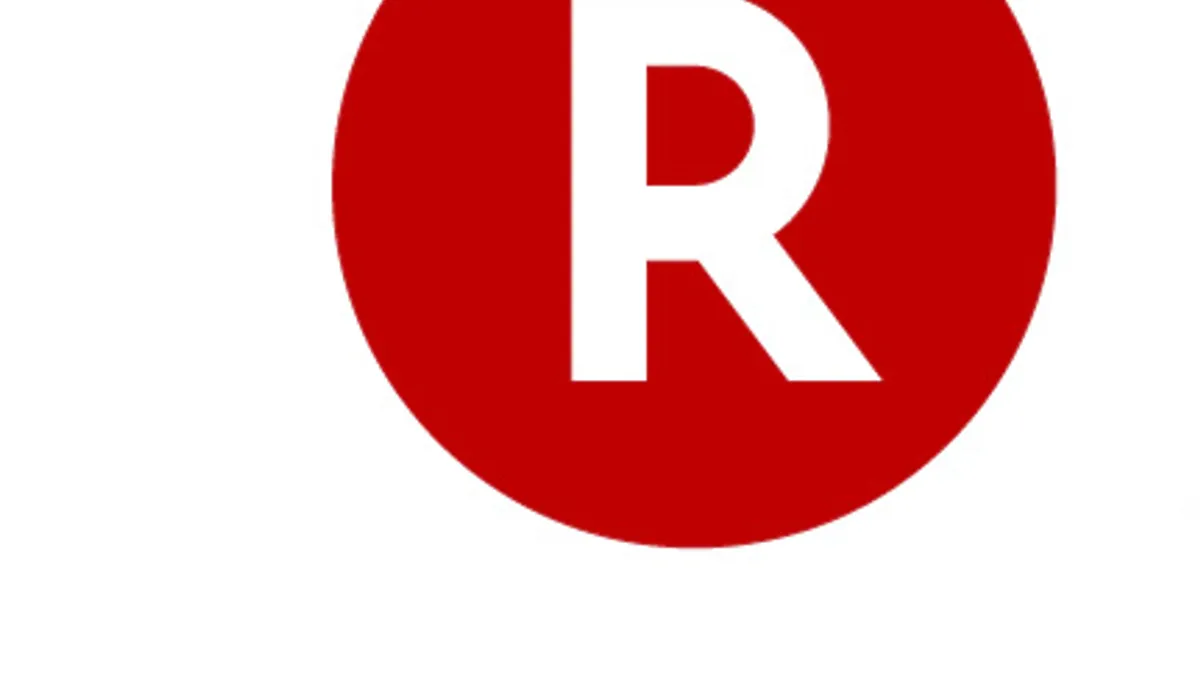UPDATE: June 1, 2020: Rakuten has resubmitted its application for federal deposit insurance with the FDIC, a spokesperson for the Japanese e-commerce company said Friday. Rakuten in March pulled its application to operate its bank as an industrial loan company (ILC).
“Rakuten Bank America is confident that the revised application is stronger and is responsive to the FDIC’s feedback,” the spokesperson said in an emailed statement seen by Bloomberg Law and American Banker. “Rakuten Bank America is committed to transparency with our constituents and to cooperating with federal and state agencies during the regulatory review process, and we look forward to serving our customers where they are — online.”
Rakuten needs federal and state approval to operate as it intends. The company has an application pending with the Utah Department of Financial Institutions for an ILC charter. If Rakuten’s federal application is approved, its deposits would get FDIC protection and the company would avoid certain bank holding company requirements.
Rakuten first applied with the FDIC in July 2019, then withdrew in March, shortly after the regulator approved ILC applications from payment company Square and student loan servicer Nelnet.
Dive Brief:
- Japanese e-commerce company Rakuten has withdrawn its application to operate its bank as an industrial loan company (ILC), but plans to refile with the FDIC in the coming months, a company spokesperson told American Banker.
- The move comes less than a week after the regulator approved deposit insurance applications for the fintech Square and the student loan servicer Nelnet, allowing both to offer banking services without oversight by the Federal Reserve.
- Lawmakers and banking industry trade groups have railed against industrial loan company applications for more than a decade, saying the model exploits a loophole. Sen. John Kennedy, R-LA, introduced a bill in November that would halt companies from establishing ILCs. "It's just a bad idea for commerce and banking to mix," Kennedy said in a statement last fall. "Not only is it unfair to community banks who have to play by different rules, it's bad for consumers."
Dive Insight:
Rakuten, which runs an online shopping platform with an emphasis on consumer rebates, has faced pushback over its ILC application ever since it was first filed in July.
American Bankers Association President and CEO Rob Nichols called on the FDIC to "rigorously review every aspect" of Rakuten’s application to see if it meets the relevant requirements for a charter.
"As Japan's largest e-commerce site, Rakuten is a major technology firm engaged primarily in non-financial activities," Nichols said in a statement. "Allowing Rakuten to participate in banking activities would raise important questions about the free flow of credit, consumer privacy and possible conflicts of interest — questions not raised by current ILC charter holders."
A company’s withdrawal, however, is no indicator that it won’t ultimately get approval. Square, for example, first filed an application in September 2017 before withdrawing it a few months later, and refiling in December 2018.
Other companies’ efforts haven't been so successful. Walmart withdrew its ILC application in 2007, nearly two years after filing, because the FDIC extended a moratorium on a number of pending ILC applications. "At no stage did we intend to use the ILC to establish branch banking operations as critics have suggested — we simply sought to reduce credit and debit card transaction costs," the company wrote at the time.
Last week's ILC application approvals — the first in 12 years — came a day after the FDIC issued a notice of proposed rulemaking (NPR) to codify standards it says it already applies to ILCs, such as confirmation of financial backing from the parent company and recordkeeping and reporting requirements, among others.
Rakuten’s withdrawal may be an effort to bring the application in line with the new guidance. "Withdrawing the application at this time gives Rakuten an opportunity to incorporate feedback received from the FDIC, which will enhance and strengthen certain areas of our application," a Rakuten Bank America spokesperson told American Banker. "Rakuten will continue to work constructively with the FDIC and the State of Utah to move forward with our applications."
In a statement regarding the NPR last week, FDIC Chair Jelena McWilliams said, "This proposal would ensure that parent companies serve as a source of strength for their industrial bank subsidiaries.
“By codifying these requirements, the proposal would enhance transparency and provide important protections for the Deposit Insurance Fund,” she added.
That may not be enough to convince the business model’s detractors.
"There's nothing innovative about these companies trying to exploit a lighter regulatory regime under this ILC and do the same financial services that are already provided by multiple financial companies," Paul Merski, the Independent Community Bankers Association's executive vice president of congressional relations and strategy, told Banking Dive in July.














